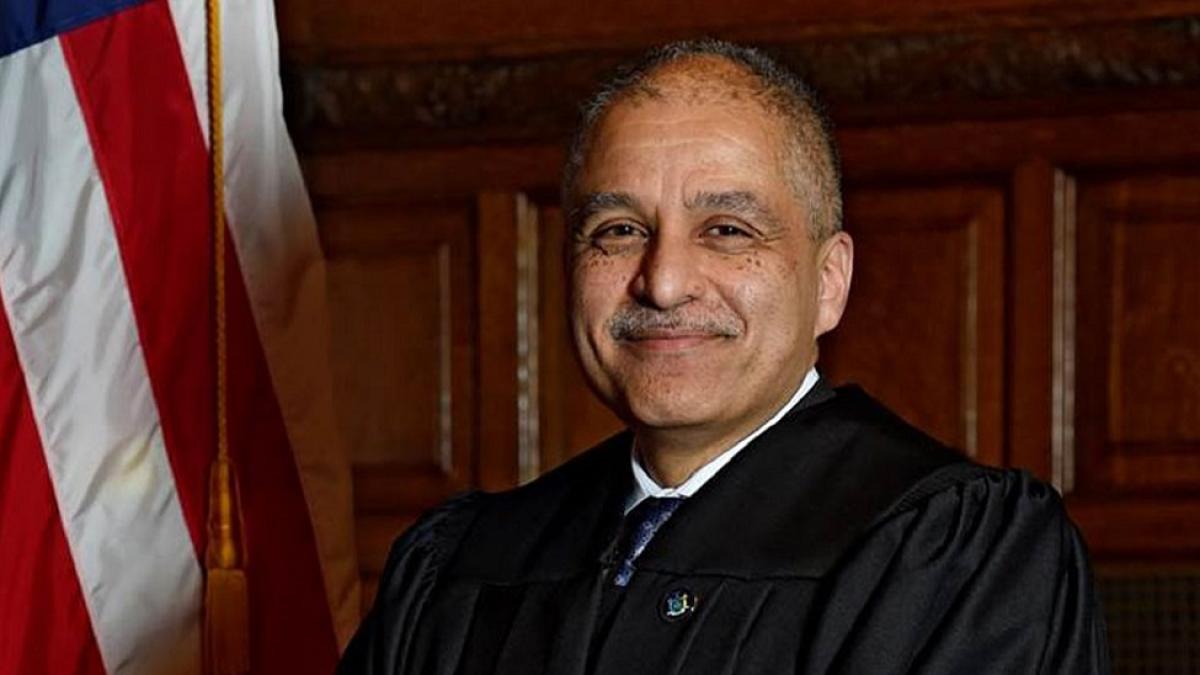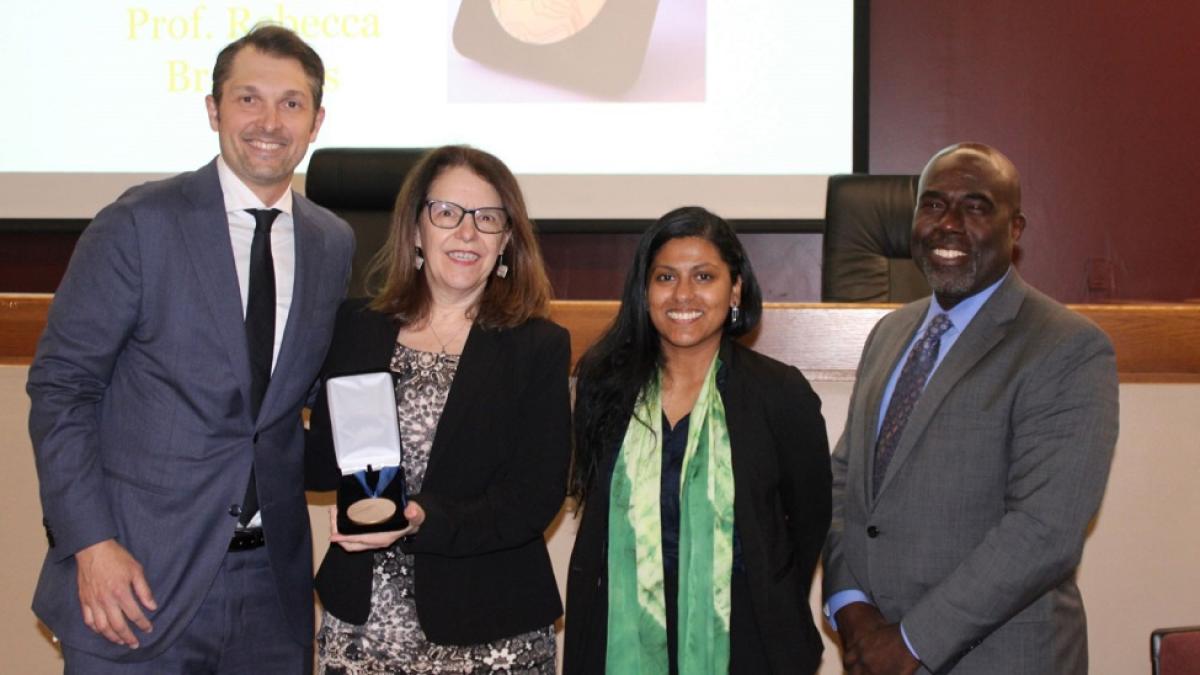The Elisabeth Haub School of Law at Pace University is pleased to announce that the Honorable Rowan D. Wilson, Chief Judge of the New York State Court of Appeals, will deliver the Law School’s commencement address at its 46th Commencement Ceremony, to be held on May 20, 2024, at the USTA Billie Jean King National Tennis Center in Queens.
U.S. Department Of Energy Praises Pace University For Sustainable Energy-Saving Practices During Pandemic
Pace to reduce its energy consumption by 20% by 2023
NEW YORK and PLEASANTVILLE, N.Y. (November 17, 2020) – The U.S. Department of Energy has praised Pace University and highlighted its efforts to save energy and reopen its buildings safely. Through quick action and a commitment to reopening all three campuses — its undergraduate and graduate campuses in Lower Manhattan and Pleasantville, and the Elisabeth Haub School of Law in White Plains—in a safe and sustainable manner, Pace was able to achieve 30% to 40% energy savings compared to the same period in 2019.
Ryan McEnany, director of energy and resiliency at Pace’s Department of Facilities and Capital Projects, noted that the unexpected realities of the pandemic demanded flexibility and innovation.
“This showcases the hard work that we undertook including additional responsibilities such as becoming experts by researching the ever-changing Centers for Diseases Control and New York State recommendations, filtering through new and effective technologies to improve indoor air quality, and setting up campus with signage to allow for proper social distancing,” said McEnany.
Notably, Pace has emerged as a key leader in the Department of Energy’s “Better Buildings Initiative,” which involves over 950 commercial, public, industrial and energy organizations. The idea behind the initiative is for innovative organizations like Pace to share their sustainable energy strategies and practices, thus providing a blueprint for others to follow that lead.
Collectively, Better Building Initiative organizations have saved close to 1.8 quadrillion B-T-U’s of energy, equivalent to nearly $11 billion, and more than 105 million tons of carbon dioxide. As a participant in the Better Buildings Challenge, Pace has pledged to a 20% energy reduction campus-wide by 2023 and is well on its way to achieving that goal.
In a blog post on the Department of Energy website, the Better Buildings Initiative highlighted Pace’s commitment to its mission and praised many of the strategies the University implemented, which included productive and efficient air-conditioning cycling during the summer months, continuous energy audits to ensure standards were being met, and an overhaul of steam traps and steam system distribution.
Additionally, the Better Buildings Initiative praised the manner in which Pace maintained sustainable energy use while also implementing necessary COVID-19 safety measures that include, but are not limited to: installation of ultraviolet lights in bathrooms to help sterilize air, installation of bipolar ionization in some large public spaces on the New York City Campus, reorganizing the traffic flow of buildings, and installation of non-septic elevator buttons.
Ibi Yolas, vice president of facilities and capital projects, credited Pace’s accomplishments in this area to the tireless work of staff, and the University’s overall commitment to a sustainable future.
“I am thankful for my team who worked tirelessly to find the right solutions and keeping their focus on the best and most effective existing and emerging strategies,” said Yolas. “And also thanks to the diligent work of the COVID task force and others who made it all possible.”
As the COVID-19 pandemic continues to evolve, Pace remains committed to exploring and implementing strategies focused on improving both campus health and campus-wide energy efficiency.
Pace University has for decades been a leader in environmental stewardship. The university offers a number of undergraduate and graduate degrees in environment studies, environmental science and environmental policy, as well as a professional certification in ecology. Additionally, The Elisabeth Haub School of Law (Haub Law) is one of the top ranked programs in the country for environmental law, a signature program at the school, and The Pace Environmental Policy Clinic has gained a national reputation for its work developing innovative environmental protections on a range of issues.
Pace University was recently featured in The Princeton Review Guide to Green Colleges: 2021 edition and earlier this year, in partnership with Con Edison, Pace University installed a Solar Tree on its Pleasantville campus. In 2015, Pace also unveiled its Environmental Center Complex that includes classrooms and a replica of the former farmhouse building which serves as a key facility for faculty and students.
About Pace University
Pace University has a proud history of preparing its diverse student body for a lifetime of professional success as a result of its unique program that combines rigorous academics and real-world experiences. Pace is ranked the #1 private, four-year college in the nation for upward economic mobility by Harvard University’s Opportunity Insights, evidence of the transformative education the University provides. From its beginnings as an accounting school in 1906, Pace has grown to three campuses, enrolling 13,000 students in bachelor’s, master’s, and doctoral programs in more than 150 majors and programs, across a range of disciplines: arts, sciences, business, health care, technology, law, education, and more. The university also has one of the most competitive performing arts programs in the country. Pace has a signature, newly renovated campus in New York City, located in the heart of vibrant Lower Manhattan, next to Wall Street and City Hall, and two campuses in Westchester County, New York: a 200-acre picturesque Pleasantville Campus and the Elisabeth Haub School of Law in White Plains. Follow us on Twitter or on our news website.


